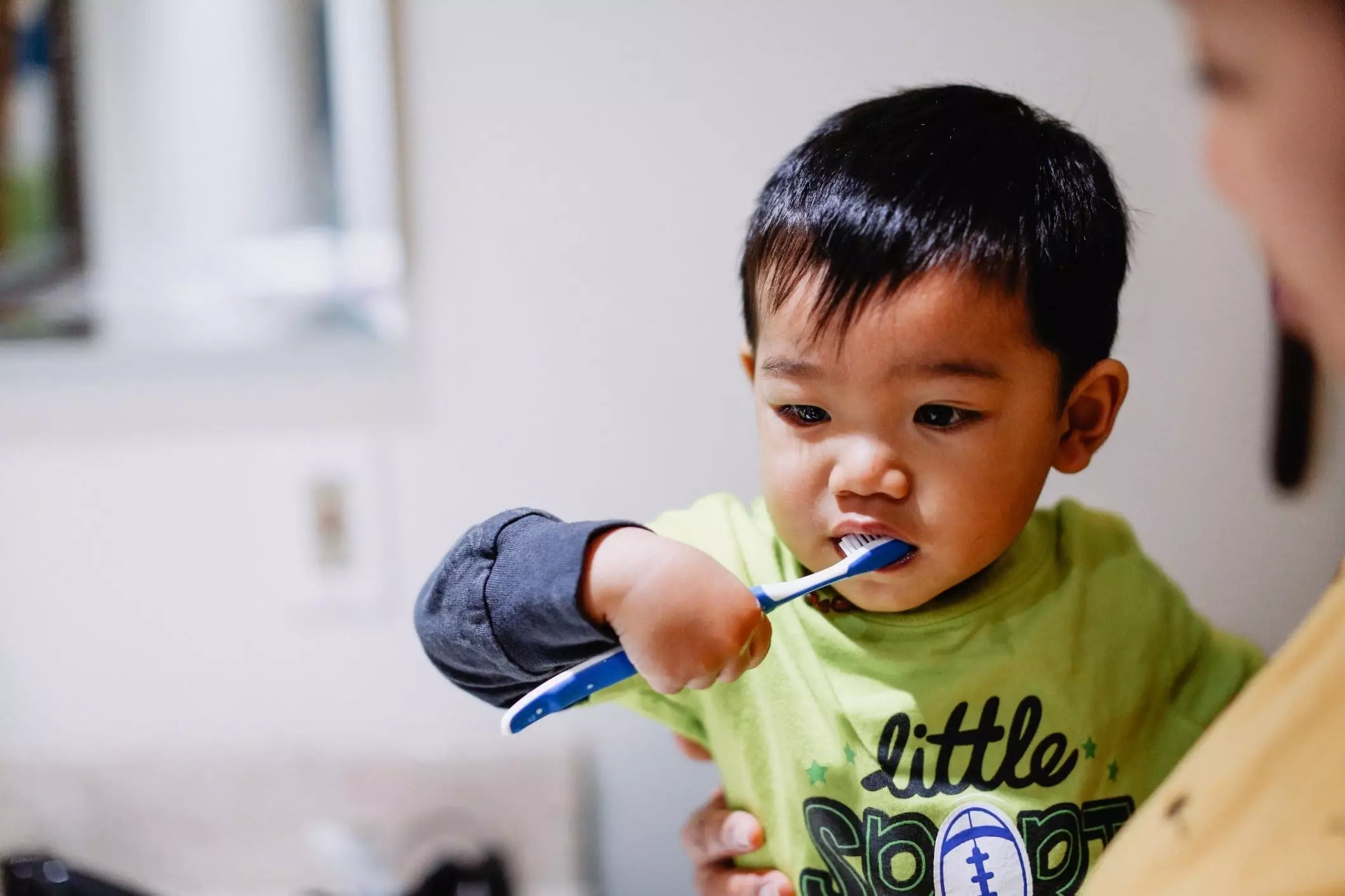Encouraging toddlers to adopt proper oral hygiene practices can often feel like an uphill battle, particularly when the day’s energy is nearly depleted. As the clock strikes 7 PM, the house may be calm, but the thought of enforcing a toothbrushing routine can appear daunting. Rather than succumbing to the temptation of postponing this nightly ritual, parents can employ effective strategies to make brushing a more enjoyable part of their child’s routine. Here’s a transformative approach to ensure that your little one learns the importance of dental hygiene while fostering a positive experience.
The journey to instill good oral hygiene begins much earlier than one might think. Research from the American Academy of Pediatric Dentistry emphasizes the necessity of introducing a soft infant toothbrush right from birth, even before the first tooth erupts. This early start is not merely about cleansing teeth; it involves familiarizing infants with the sensations of a toothbrush and establishing a routine. By gently cleansing their gums and eventually incorporating a small amount of fluoride toothpaste as the first teeth emerge, parents can create an environment where dental hygiene feels natural rather than a chore.
Consistency is key when it comes to developing long-lasting habits. Children thrive on routine and predictability, which helps them understand what is expected of them. For instance, by integrating toothbrushing into the bedtime ritual, children learn to associate it with winding down for the night. Setting a clear sequence—milk, brush, pajamas, and sleep—ensures that tooth brushing becomes a reliable part of their evening. This habitual structure not only makes the process smoother but also reinforces the significance of oral care.
Empower with Choices
Another fundamental tactic for engaging toddlers in dental hygiene is providing them with choices. Children love having a say in decisions that affect them. Allowing them to pick their toothbrush—be it one adorned with their favorite superhero or in a vibrant color—can ignite excitement about brushing. Additionally, giving them the opportunity to choose their toothpaste flavor, whether it’s strawberry or mint, instills a sense of ownership over their dental care. This involvement can transform toothbrushing from a mundane task into a delightful prospect.
Lead by Example: Family Involvement
Children often mimic the behaviors of adults. To that end, making toothbrushing a family affair can significantly enhance a child’s willingness to participate in the process. When parents demonstrate their own brushing routines, it emphasizes the importance of this act and normalizes it as a daily activity. Turning brushing time into a collaborative experience can foster a delightful environment rather than a battle. The ritual of brushing together not only enhances bonding moments but also reinforces positive behaviors.
Encourage Independence
While perfecting the technique of brushing might be beyond the capabilities of toddlers, there is no reason to restrict their participation. Allowing your little one to brush their teeth, followed by a parent’s assistance to finish the job, strikes a balance between fostering independence and ensuring thorough dental care. This collaborative approach also validates their efforts, making them feel accomplished.
Research indicates that music plays a significant role in learning and emotional security. Integrating music into toothbrushing time can provide a structured yet fun experience. For example, singing a familiar tune while brushing or even making up a silly song can alleviate apprehension about the routine. Creating an atmosphere of fun can lead to that “aha” moment where children look forward to brushing instead of dreading it.
Positive Reinforcement and Rewards
Utilizing positive reinforcement is a powerful motivator for toddlers. Instead of focusing on consequences for not brushing, celebrate achievements and milestones. Consider implementing a sticker chart that tracks their brushing habits—offering small rewards for reaching certain goals. This approach redirects focus from the negative aspects of skipping brushing to the positive reinforcement of accomplishments.
While brushing is essential, flossing may not be necessary until dental development progresses. It is generally advisable to wait until the child’s teeth start touching before introducing flossing into their oral hygiene routine. Consulting with a pediatric dentist can help parents determine the right time to begin this additional step in dental care.
Fostering a Positive Attitude
Finally, it’s crucial to avoid instilling fear around dental hygiene. Scaring toddlers with tales of cavities or dentist visits can lead to anxiety around oral care. Instead, parents should focus on empowering their children with knowledge about the benefits of brushing, such as having strong teeth, healthy gums, and a confident smile. Building a positive connection with dental hygiene will serve children well as they grow.
As parents step into the path of nurturing healthy dental habits in their toddlers, they create not just a routine but a lifelong appreciation for self-care. Through patience, creativity, and engagement, brushing can transform from a dreaded task into an exciting adventure—a ritual that builds strong teeth and happy smiles for years to come. Happy brushing!

